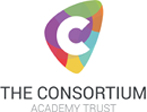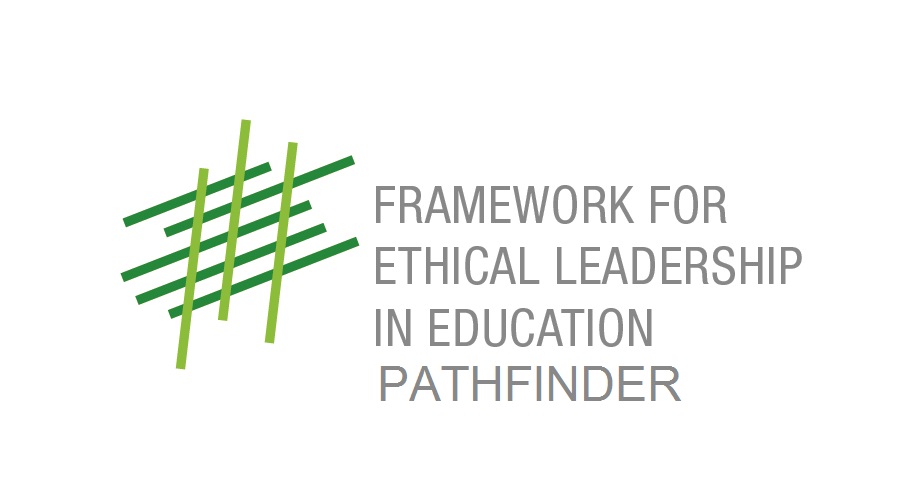Computing
The Computing department forms part of the Business and Computing faculty.
| Staff | Position |
|---|---|
| Mr Allen | Curriculum Leader |
| Mr Drury | Teacher |
| Mr Ingram | Teacher |
| Miss McKay | Teacher |
Key Stage 3
In Years 7 and 8 students follow a broad curriculum developing their skills, knowledge, and understanding across both subjects.
|
Year 7 |
Year 8 |
|
Online safety Office apps Problem solving Spreadsheets Text based programming |
Online safety Graphics Data handling Control systems Understanding computers and networks |
Additional resources to support learning in Key Stage 3 Computing:
Encourage your child to:
Talk about the topics and ideas we are covering in lessons
A range of resources can also be found on the school’s Google Drive which students can access from home as well as school.
Where required, passwords have been provided to students directly. For further support please contact the school.
Key Stage 4
GCSE Computer Science (OCR)
Aims of the course:
You may already have some knowledge of computers; however, this course will introduce you to what goes on ‘behind the scenes’. As part of this course, you will investigate computer programming and how to solve problems using logical thinking.
Programming is a useful skill to have. This is especially true if you see your future involving computers. To do well on this course, it is useful to have a strong interest in and aptitude for mathematics.
Course content:
There are two theory units and a practical project that form the GCSE Computer Science course:
01 Computer systems - This component will introduce students to the Central Processing Unit (CPU), computer memory and storage, wired and wireless networks, network topologies, system security and system software. It is expected that students will become familiar with the impact of Computer Science in a global context through the study of the ethical, legal, cultural and environmental concerns associated with Computer Science.
02 Computational thinking, algorithms and programming - This component incorporates and builds on the knowledge and understanding gained in Component 01, encouraging students to apply this knowledge and understanding using computational thinking. Students will be introduced to algorithms and programming, learning about programming techniques, how to produce robust programs, computational logic, translators and facilities of computing languages and data representation. Learners will become familiar with computing related mathematics.
3 Programming project – The programming project provides an extended opportunity for students to demonstrate their practical ability in the knowledge and understanding they have gained in Components 01 and 02.
|
Component 01 |
Component 02 |
Programming project |
|
• Systems Architecture • Memory • Storage • Wired and wireless networks • Network topologies, protocols and layers • System security • System software • Ethical, legal, cultural and environmental concerns |
• Algorithms • Programming techniques • Producing robust programs • Computational logic • Translators and facilities of languages • Data representation |
• Programming • Analysis • Design • Development • Testing and evaluation conclusions |
Encourage your son / daughter to:
Read around the subject using the online media and the many technology focussed blogs.
Carefully learn the meaning of the key terms for each topic.
Use the revision materials provided by the school throughout their study to help develop a deeper understanding.
Additional resources to support learning in GCSE Computer Science:
https://app.senecalearning.com/login
https://www.codecademy.com/
There a wide range of additional resources available to students on the schools Google Drive which is accessible out of school.
Where required, passwords have been provided to students directly. For further support please contact the school.
BTEC Level 2 Tech Award in Digital Information Technology (Pearson)
Aims of the course:
Digital skills span all industries, and almost all jobs in the UK today require employees to have a good level of digital literacy.
This course is a practical introduction to life and work in the industry, students will be able to:
· develop technical skills and techniques
· plan a digital solution for a given brief
· develop an understanding of what cyber security is and the importance of legal and ethical considerations when using modern technologies.
Course content:
There are three components to this course:
Component 1: Exploring User Interface Design Principles and Project Planning Techniques
In this section students will develop their understanding of what makes an effective user interface and then while developing their own interface how to effectively manage a project. They will be required to plan, design and create a user interface.
Component 2: Collecting, Presenting and Interpreting Data
In this section students will gain an understanding of the characteristics of data and information and how they help organisations in decision making. They will then use data manipulation methods to create a dashboard to present and draw conclusions from information.
Component 3: Effective Digital Working Practices
In this section students explore how organisations use digital systems and the wider implications associated with their use.
|
Component 1 |
Component 2 |
Component 3 |
|
Investigate user interface design for individuals and organisations Use project planning techniques to plan and design a user interface Develop and review a user interface |
The role and impact of using data on individuals and organisations Create a dashboard using data manipulation tools Draw conclusions and review data presentation methods |
Modern technologies Cyber security The wider implications of digital systems Planning and communication in digital systems |
Assessment:
Component 1 and 2 are both internally assessed and are worth 30% of the overall grade each.
Component 3 is an external examination lasting 1 hour 30 minutes. This is worth 40% of the overall grade.
Encourage your son / daughter to:
Discuss what they have been covering in their lessons
Complete all of the work for the coursework units to the best of their ability
Keep up to date with what is happening in the world relating to cyber security, changes in the law affecting use of IT systems and data
Read about new technology and how it can be used
Additional resources to support learning in BTEC Digital Information Technology:
There are a range of resources available on the school’s Google Drive that can be accessed outside of school.
Where required, passwords have been provided to students directly. For further support please contact the school.
Sixth Form Courses
A Level Computer Science (AQA)
Aims of the course:
The course develops a student’s understanding of the main areas of computer science. This subject is creative and the course allows students to explore this side of the subject through practical programming. The course also covers the use of computational thinking to solve problems. The language that is used initially is Visual Basic, other languages such as C#, Haskell, Python and F# will be explored.
Course Content:
Across the two years students will complete the following units:
1. Fundamentals of programming
2. Fundamentals of data structures
3. Fundamentals of algorithms
4. Theory of computation
5. Fundamentals of data representation
6. Fundamentals of computer systems
7. Fundamentals of computer organisation and architecture
8. Consequences of uses of computing
9. Fundamentals of communication and networking
10. Fundamentals of databases
11. Big Data
12. Fundamentals of functional programming
13. Systematic approach to problem solving
14. Non-exam assessment – the computing practical project
Assessment:
The course comprises:
Non-exam assessment (20%) – This assesses student's ability to use the knowledge and skills gained through the course to solve or investigate a practical problem.
Examination (80%) – Paper 1 (40%) is an on screen exam lasting 2 hours 30 minutes and tests a student's ability to program, as well as their theoretical knowledge of computer science from subject content 1 – 4 above and the skills required from section 13 above. Part of the paper is based on a skeleton program which is issued before the exam.
Paper 2 (40%) is a written exam lasting 2 hours 30 minutes and tests a student's ability to answer questions from subject content 5 – 12 above.
Encourage your son /daughter to:
· Discuss what they have been covering in lessons
· Read around the subject using online blogs and articles on technology
· Develop their programming skills further by writing programs at home
· Use the additional resources that are found on the school’s Google Drive
Where required, passwords have been provided to students directly. For further support please contact the school.
BTEC Level 3 National in Information Technology (Pearson)
Aims of the course:
The objective of this qualification is to give students the opportunity to develop their knowledge and skills in IT systems, systems management and social media in business. This will enable students to progress to further study in the IT sector or other sectors.
Students will develop a common core of IT knowledge and study areas such as the relationship between hardware and software that form an IT system, managing and processing data to support business and using IT to communicate and share information.
Course Content:
Students will study 3 compulsory units and one optional unit.
The three compulsory units are:
Unit 1: Information technology systems
Unit 2: Creating systems to manage information
Unit 3: Using social media in business
They then study a unit taken from:
Unit 5: Data modelling
Unit 6: Website development
Assessment:
The course comprises:
Unit 1 and 2 are assessed externally by examination.
Unit 1 is a written examination lasting two hours.
Unit 2 is a practical examination taken over the period of a week with 5 sessions of 2 hours each.
Unit 3 and 5 or 6 are assessed internally through a piece of extended coursework
Encourage your son /daughter to:
Discuss what they are covering in lessons
Develop an understanding of social media by interacting with businesses on social media
Use the resources available on the school’s Google Drive to support their study
Fully utilise the KnowItAllNinja subscription
Where required, passwords have been provided to students directly. For further support please contact the school.




